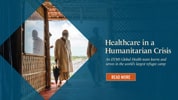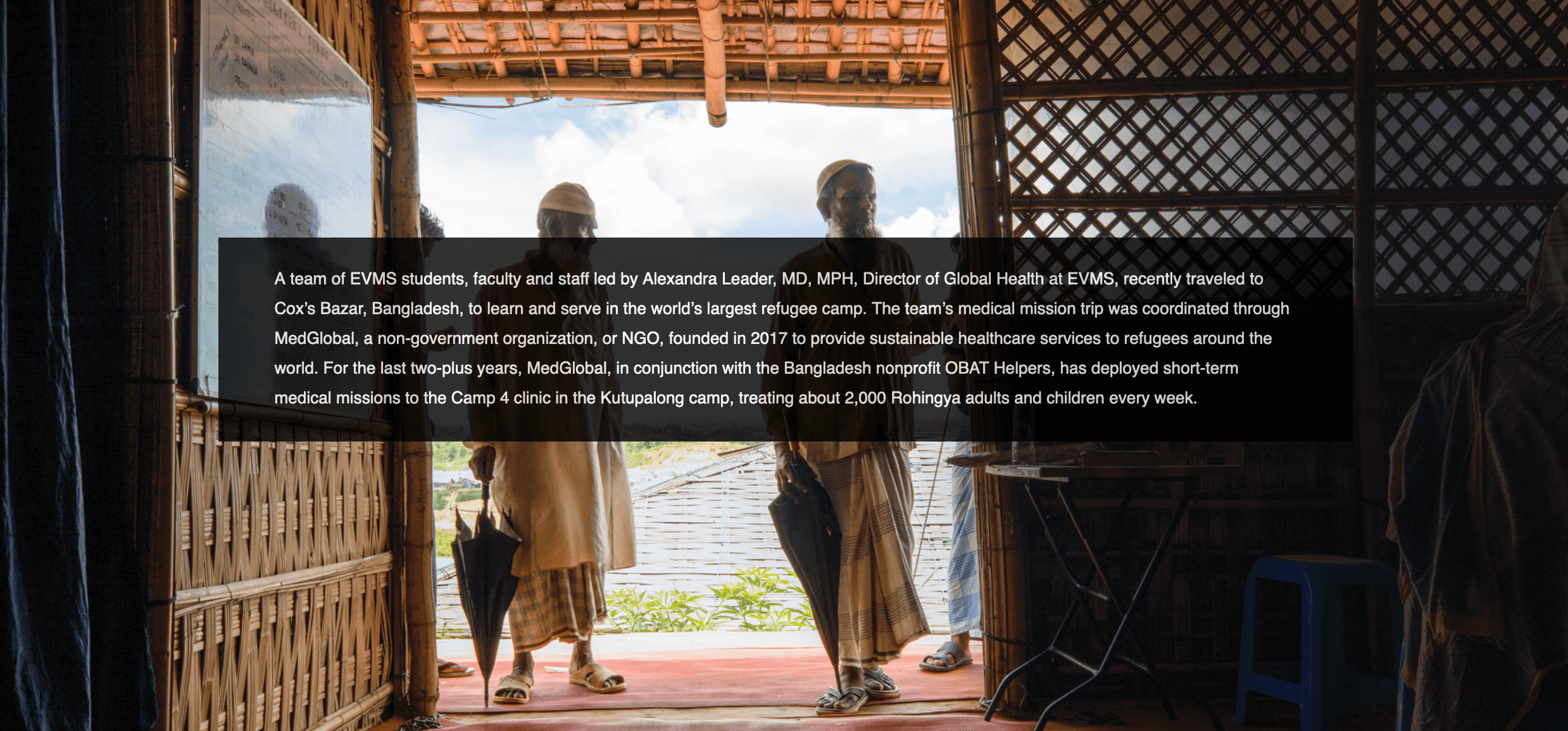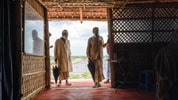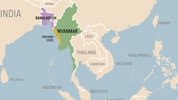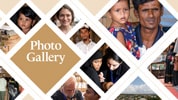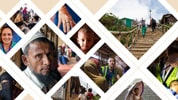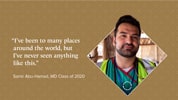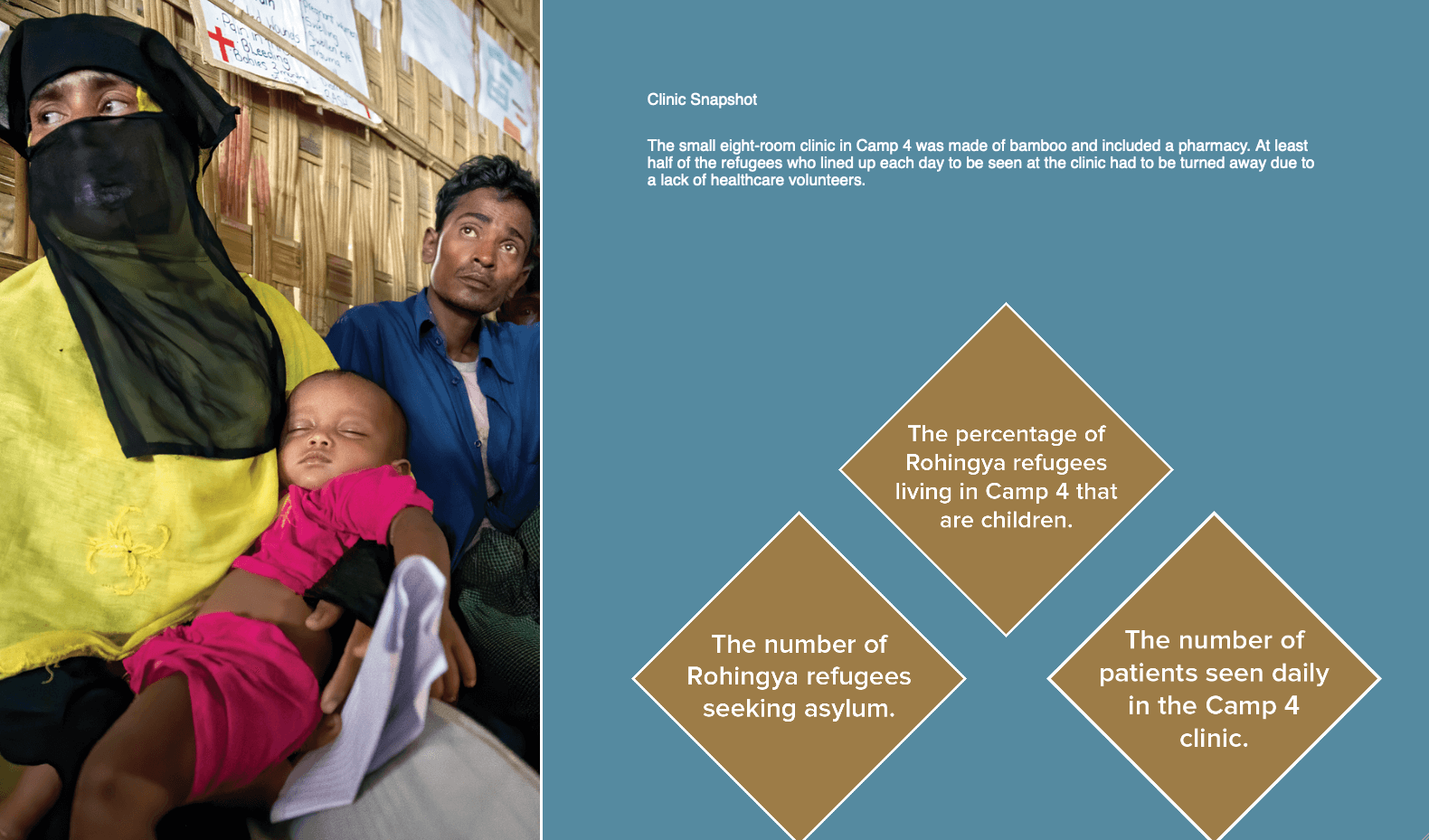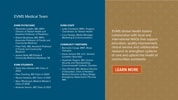Healthcare in a Humanitarian Crisis
An EVMS Global Health team learns and serves in the world's largest refugee camp
A team of EVMS students, faculty and staff led by Alexandra Leader, MD, MPH, Director of Global Health at EVMS, recently traveled to Cox’s Bazar, Bangladesh, to learn and serve in the world’s largest refugee camp. The team’s medical mission trip was coordinated through MedGlobal, a non-governmental organization, or NGO, founded in 2017 to provide sustainable healthcare services to refugees around the world. For the last two-plus years, MedGlobal, in conjunction with the Bangladesh nonprofit OBAT Helpers, has deployed short-term medical missions to the Camp 4 clinic in the Kutupalong camp, treating about 2,000 Rohingya adults and children every week.

Hope, health and humanity
In 2017, thousands more Rohingya people began to flee religious and ethnic persecution in Myanmar, a country adjacent to Bangladesh, after their communities were destroyed. The crisis intensified, and today officials estimate that nearly 1 million Rohingya refugees are living in the Kutupalong camp. Camp 4, the one whose healthcare needs are served by MedGlobal, houses 30,000 refugees — about 60% of them children.
The rut-filled roads in Cox’s Bazar, Bangladesh, were always congested and often chaotic. Each morning, the 15 volunteers on the EVMS medical team piled into two vans to begin a raucous and arduous two-hour drive to the Kutupalong Refugee Camp.
But when the team arrived, they quickly forgot the trek and turned their attention to the full waiting room. Over their six clinic days, they treated an average of 230 patients a day in the Camp 4 Medical Clinic, located within the largest refugee camp in the world.
Camp
4
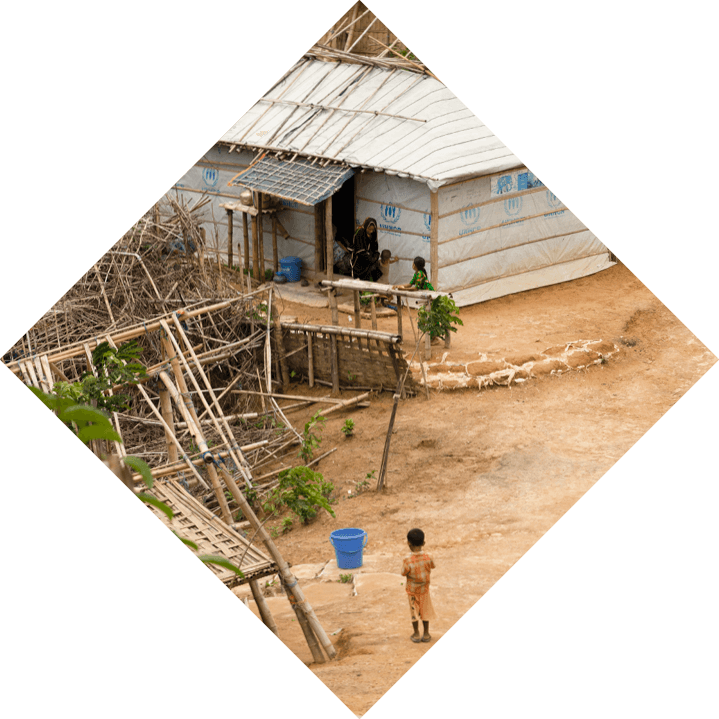
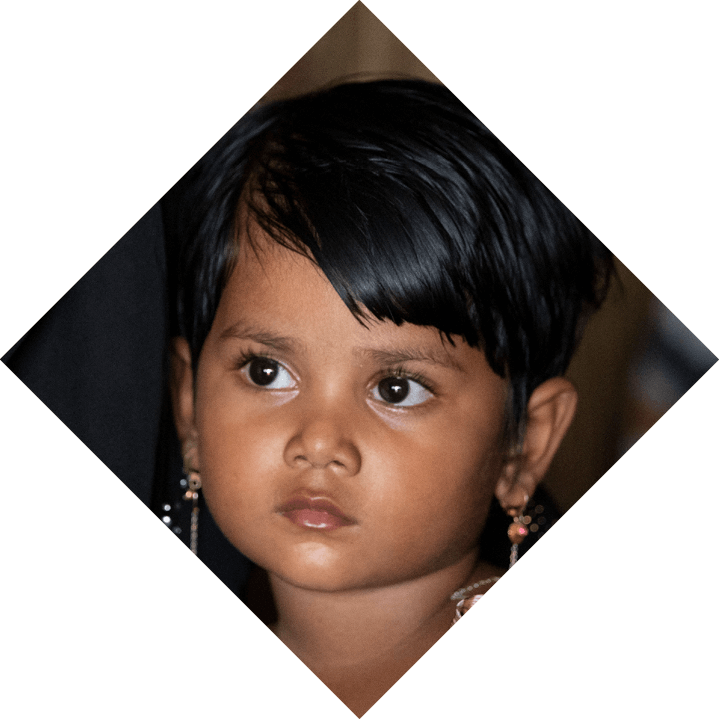
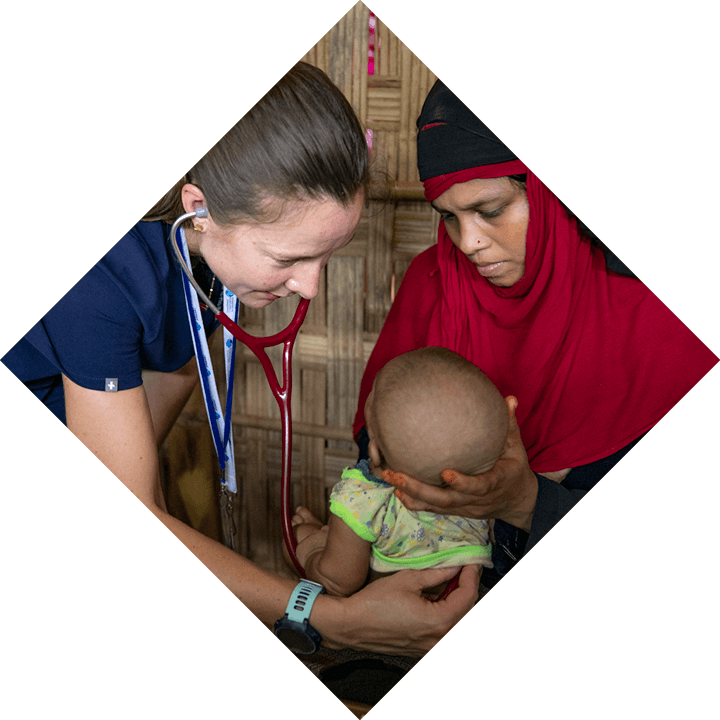
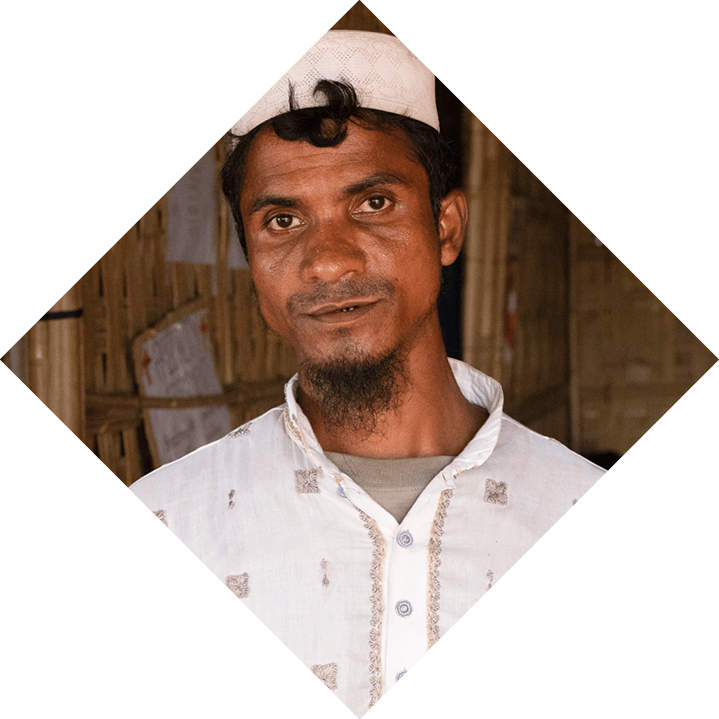
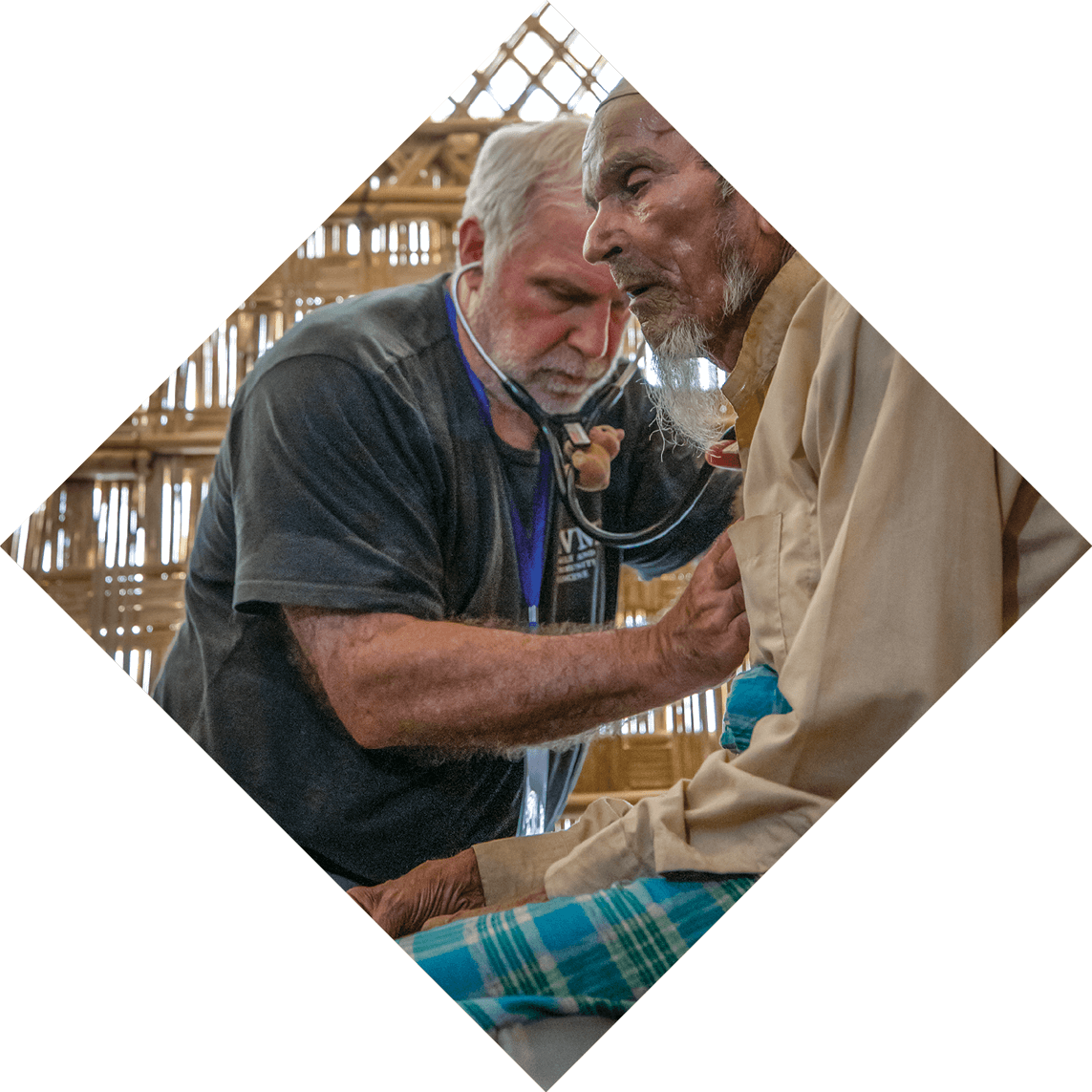
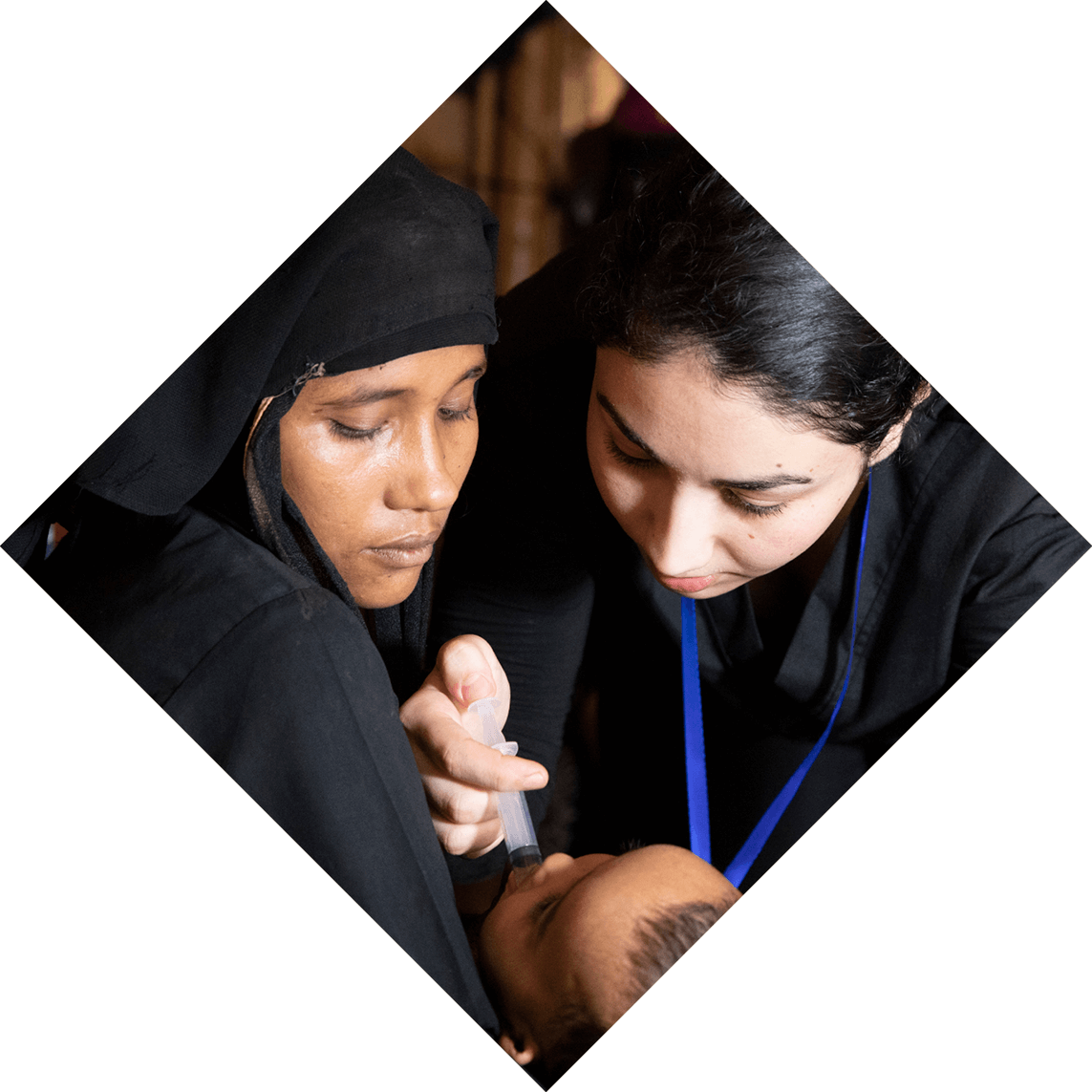
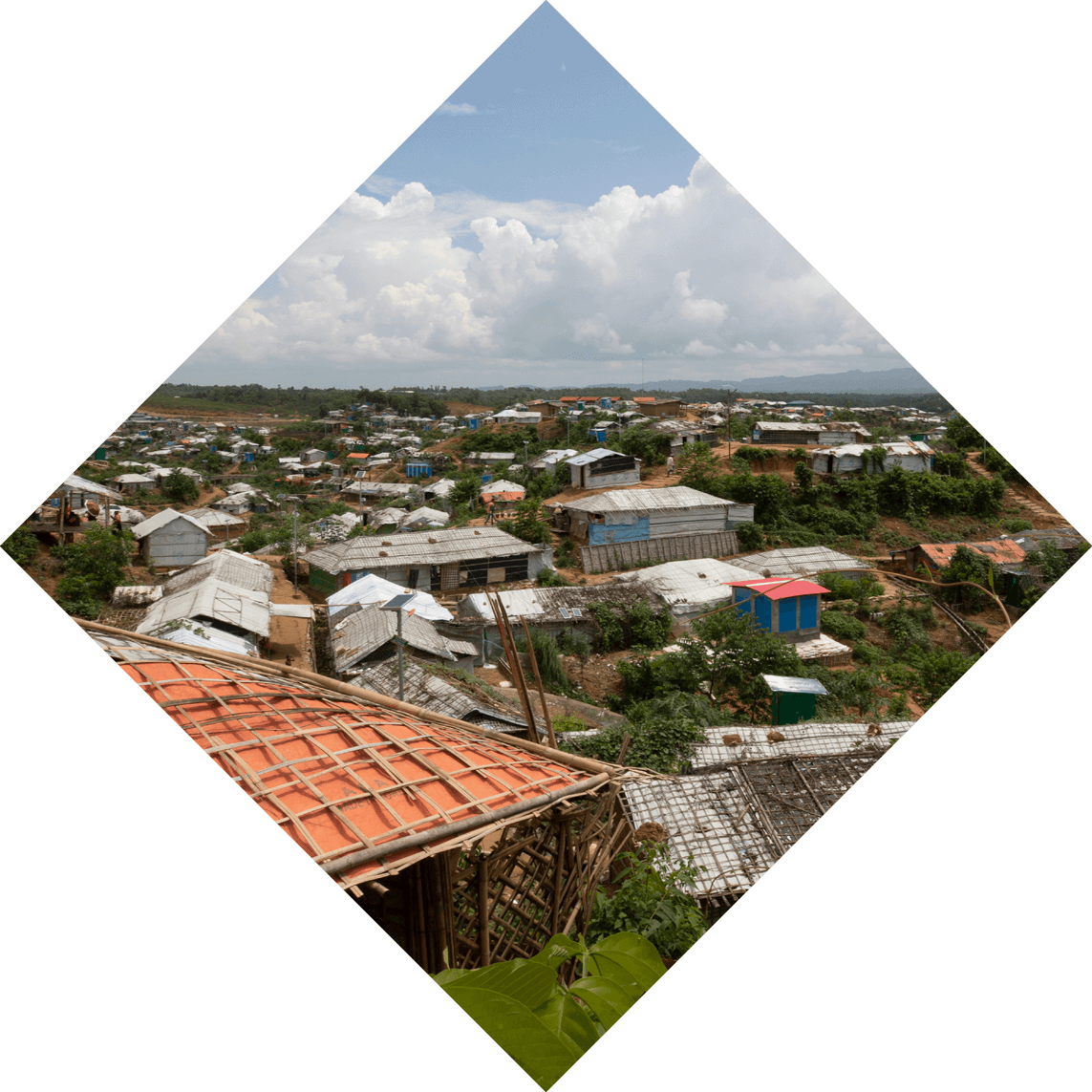
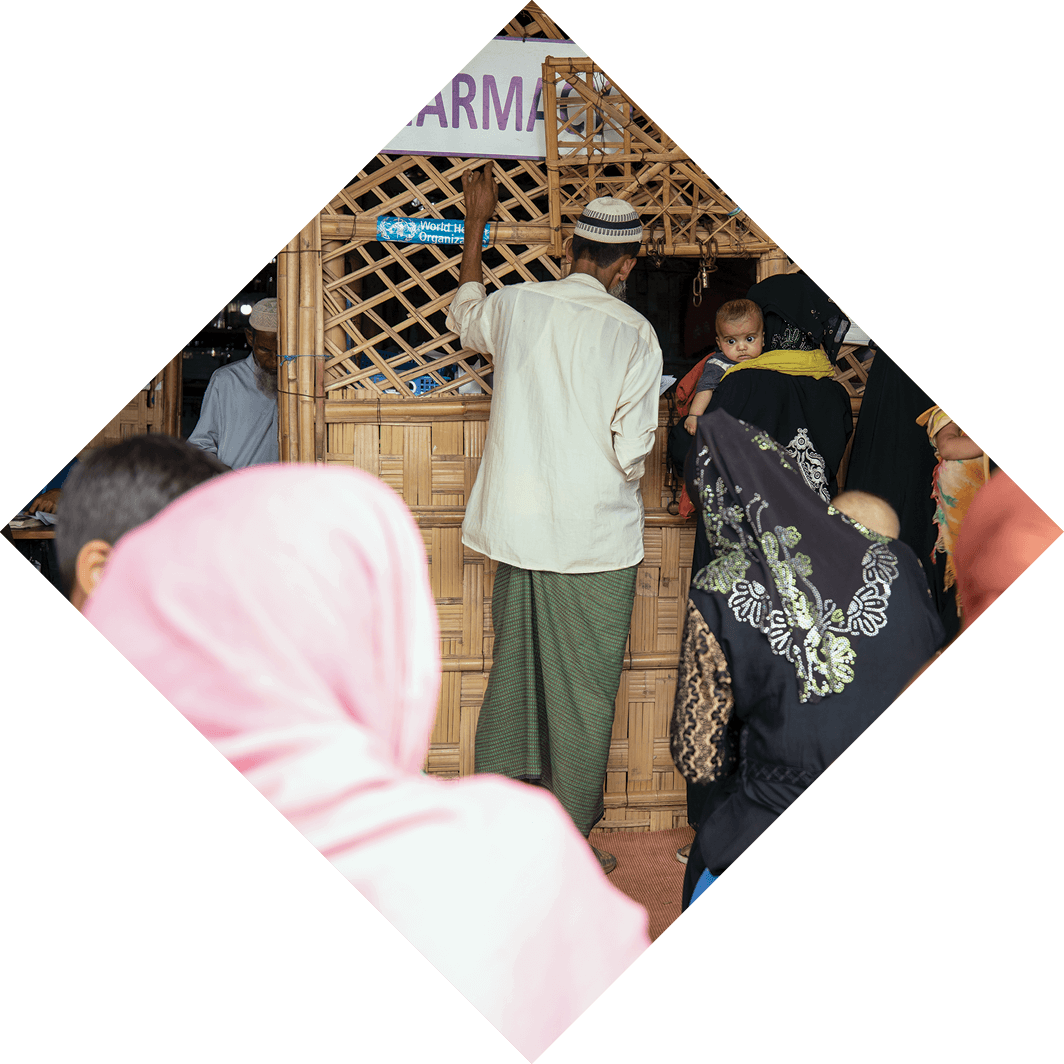
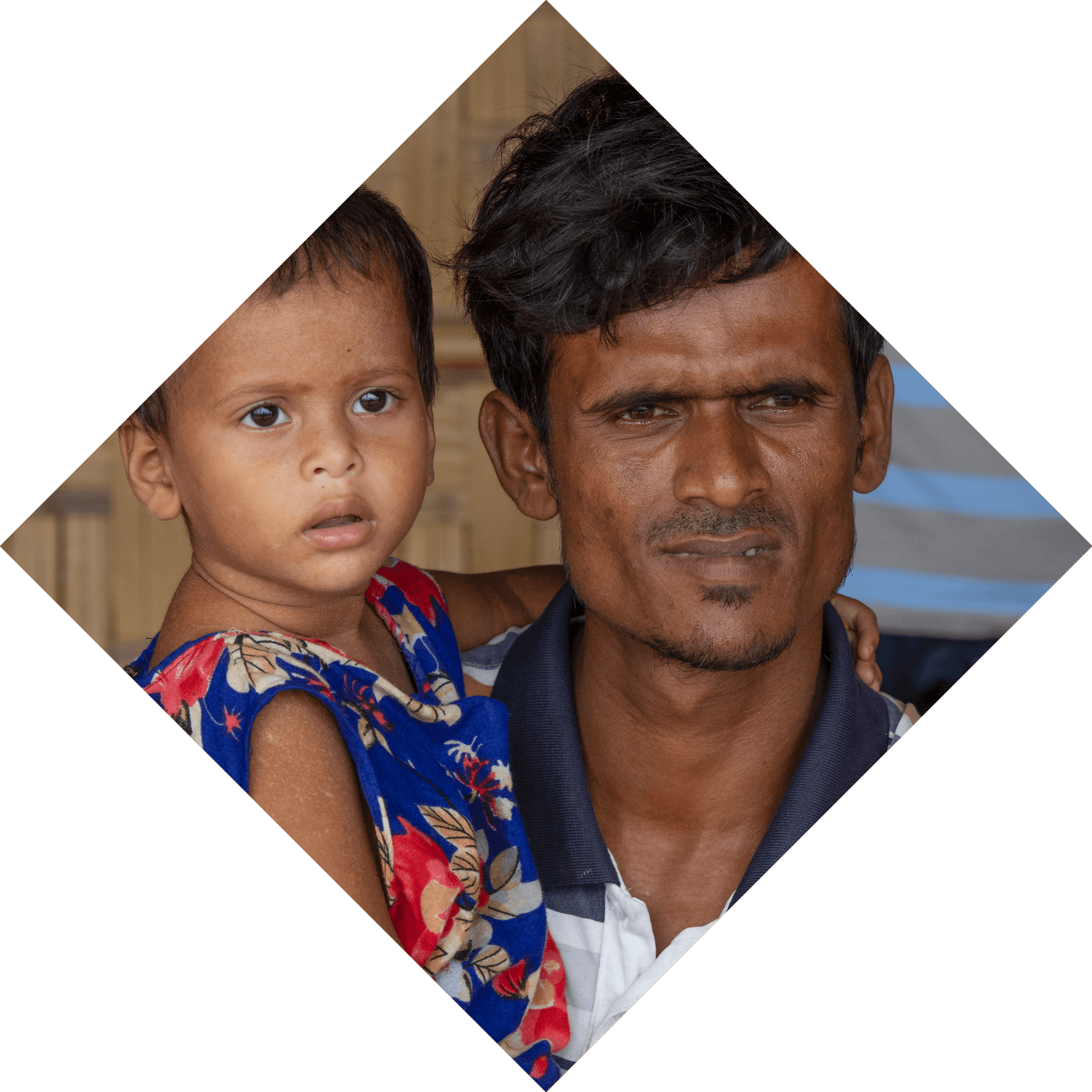
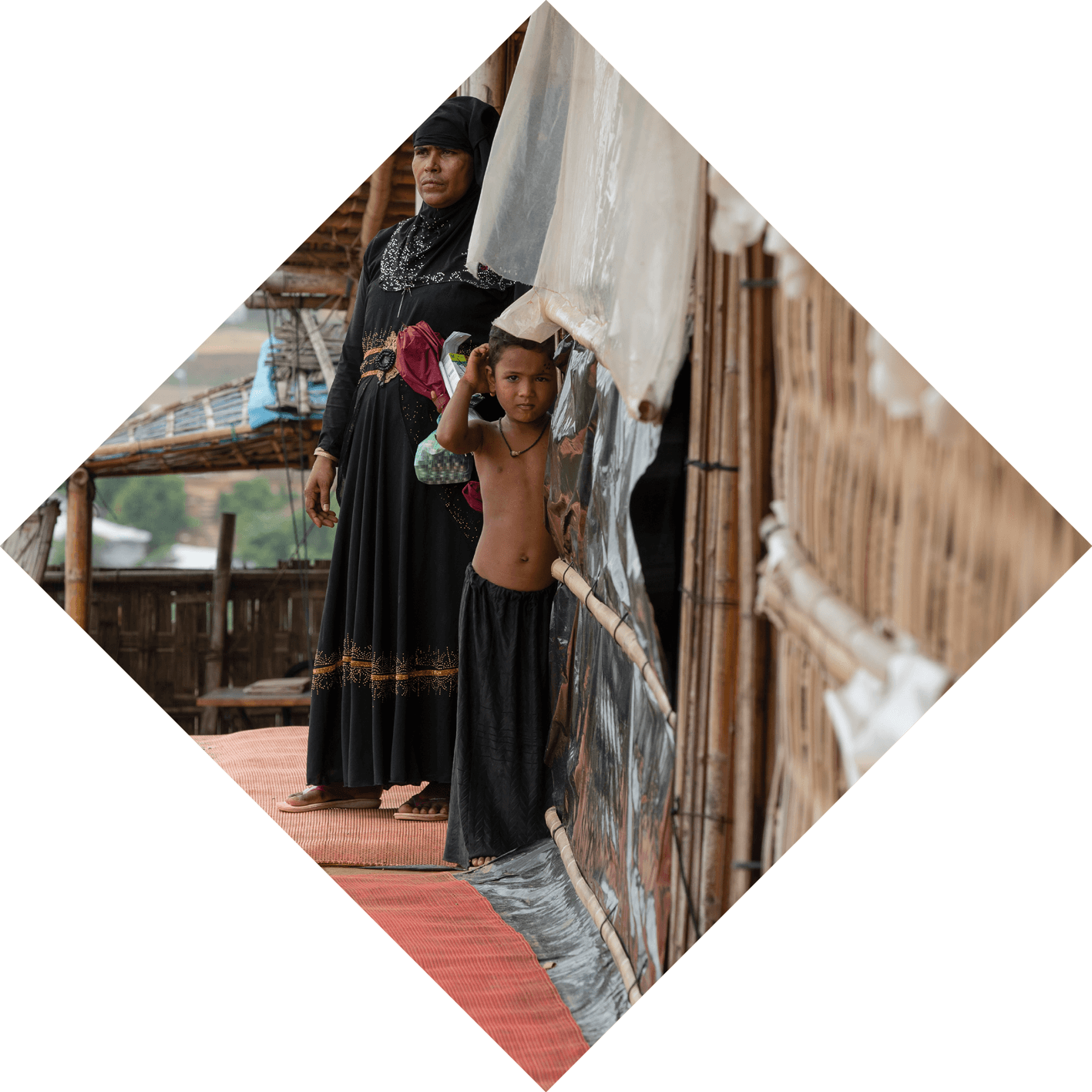
Dr. Leader says the team’s work crossed the entire spectrum of human connection and human resilience.
“We’re taking on healthcare in the midst of an enormous humanitarian crisis,” she says. “At the same time, we’re also face to face with these Rohingya men and women and so many children in the intimate spaces of an eight-room bamboo clinic.”
While there, the six EVMS trainees on the team — one resident physician and five students — performed the same duties they would in their normal rotations. “It’s a wonderful opportunity to work with doctors who do this day in and day out, all day, every day,” says Ellen Dowling, MD Class of 2020. “It’s humbling to witness such beautiful dedication to this work.”
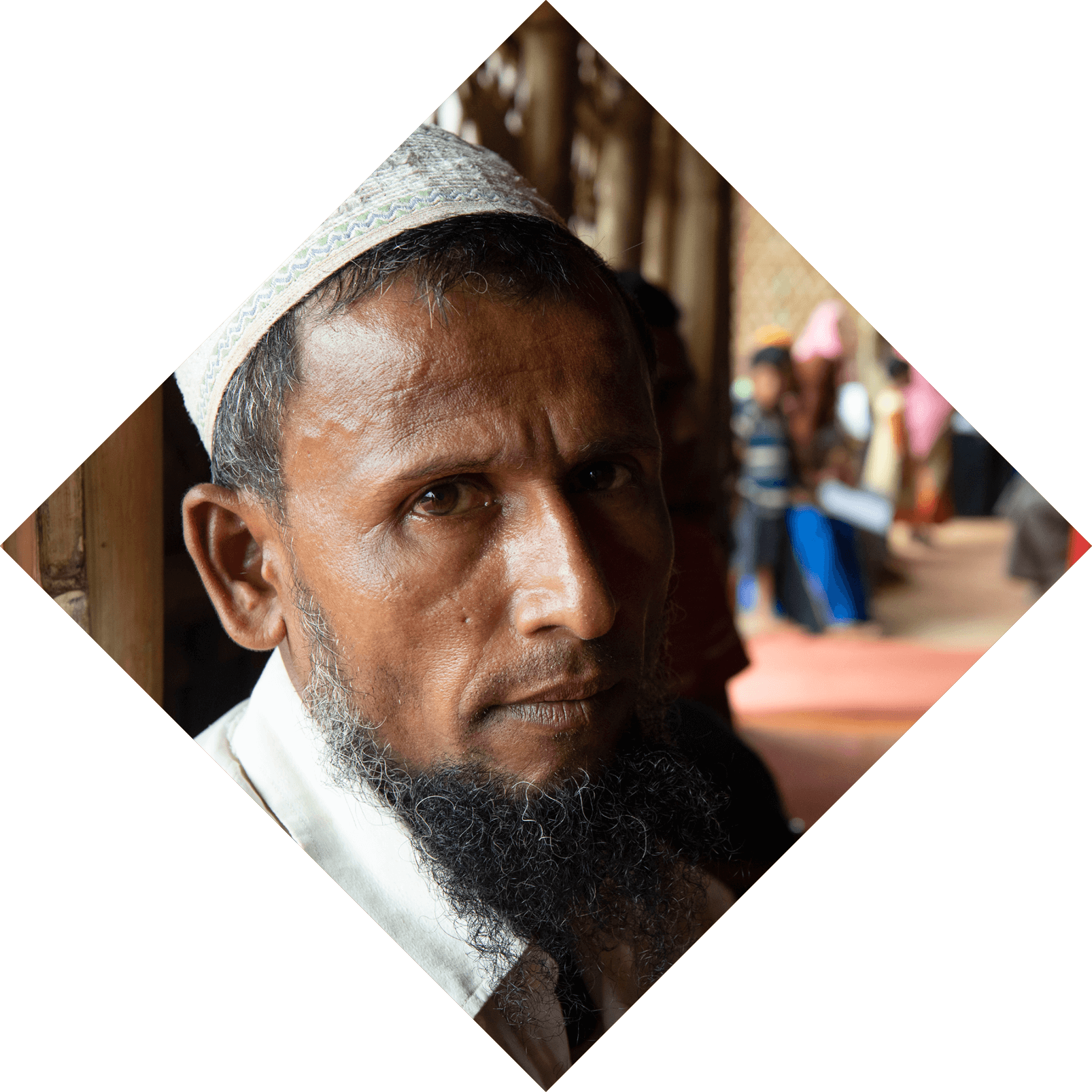
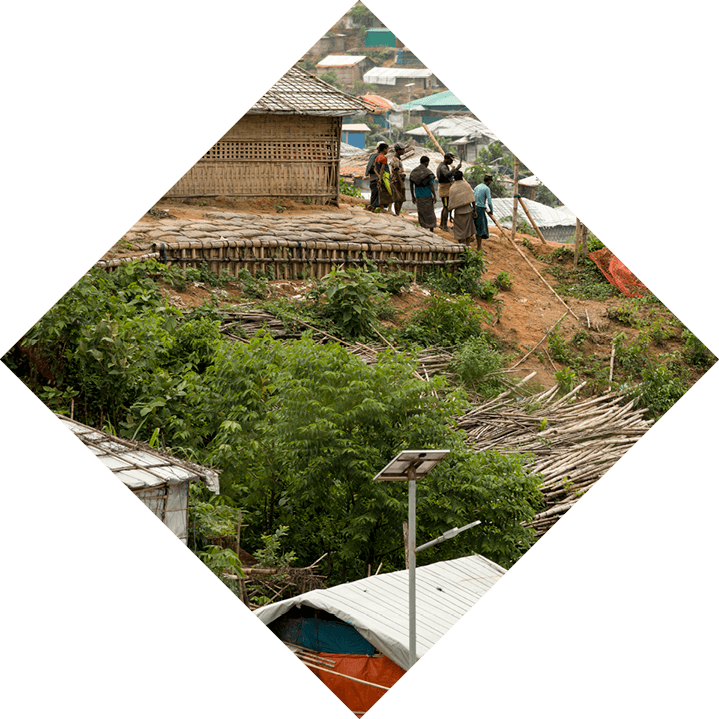
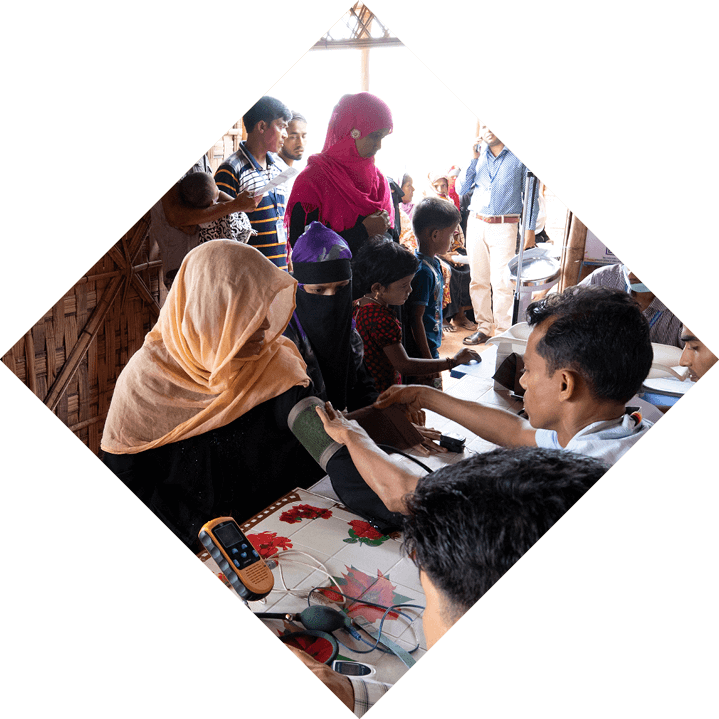
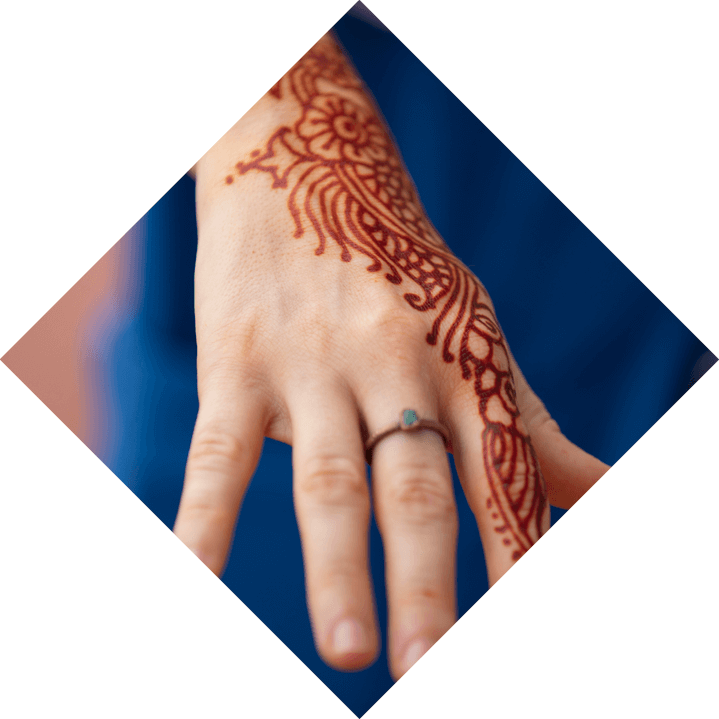
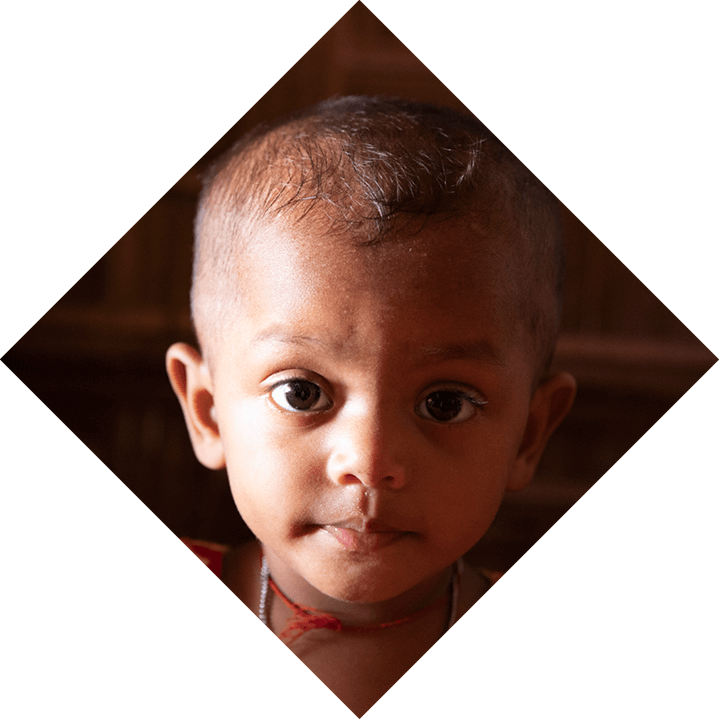
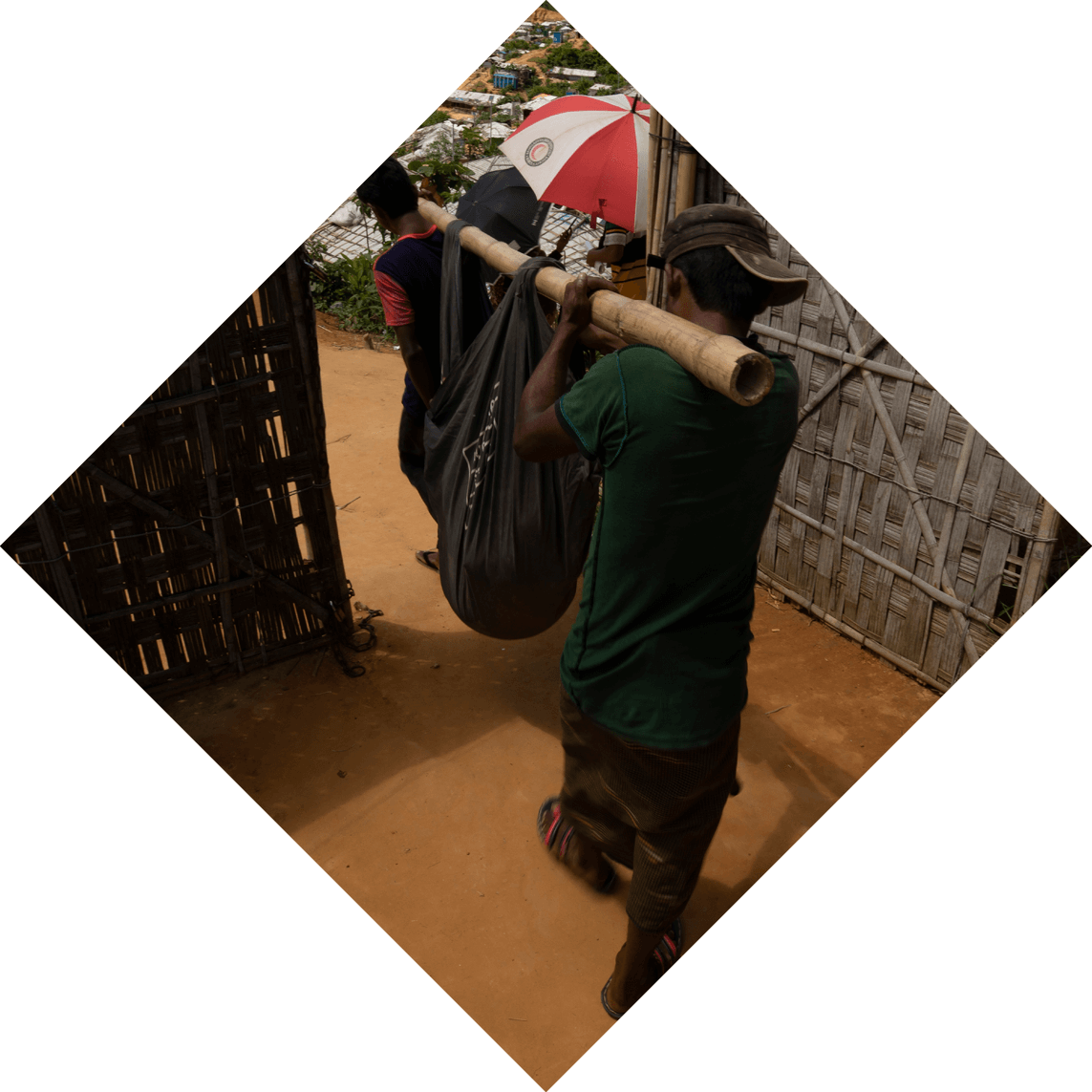
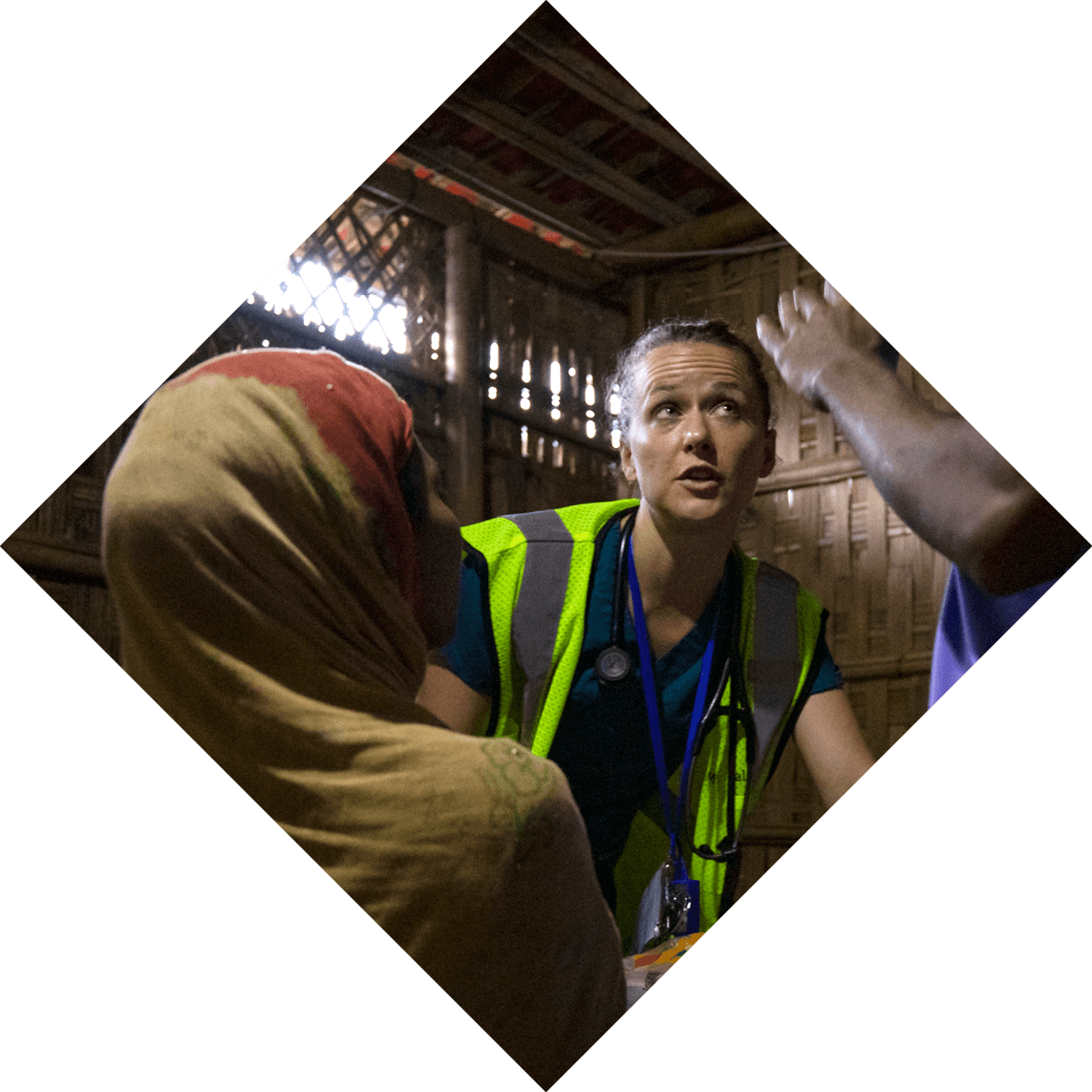
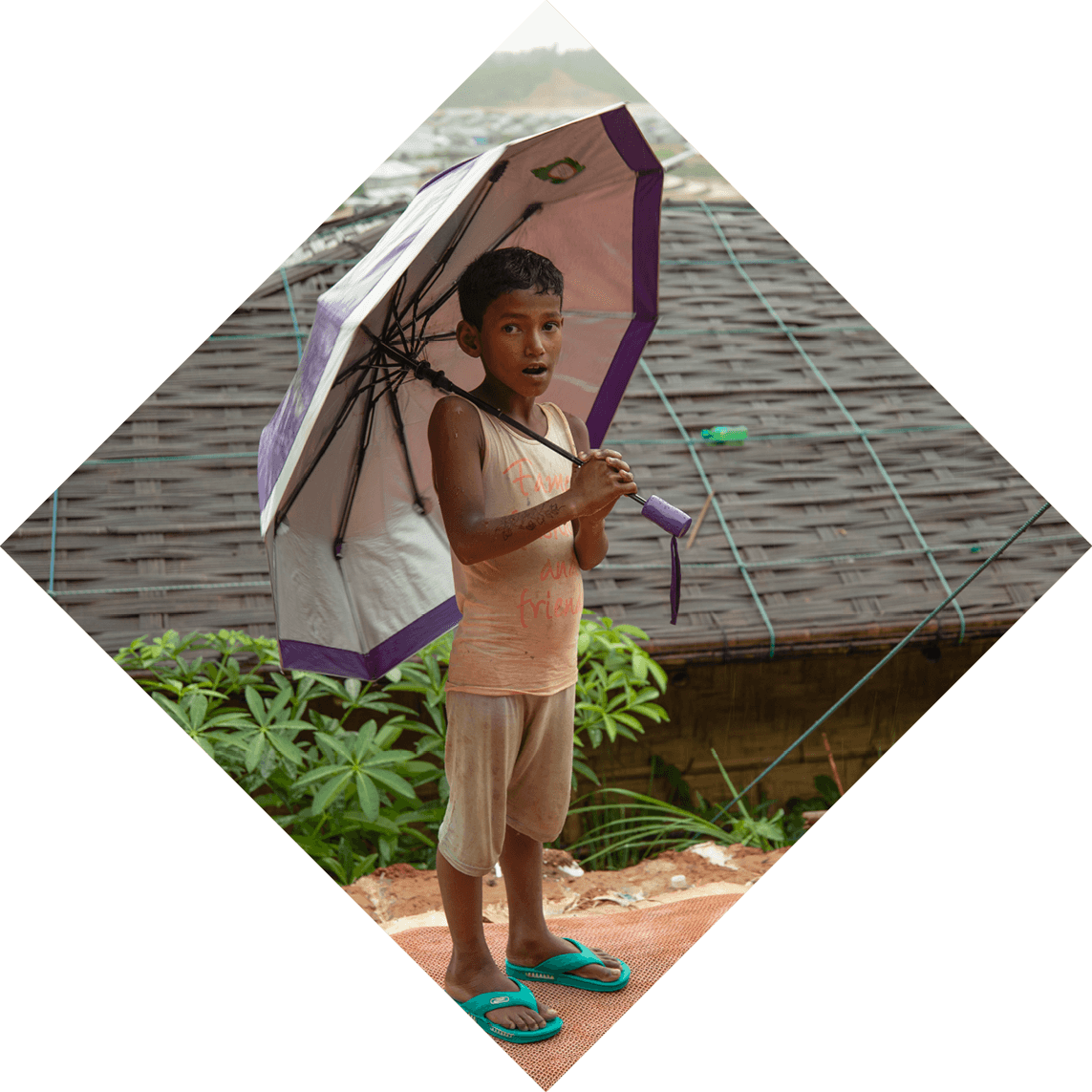
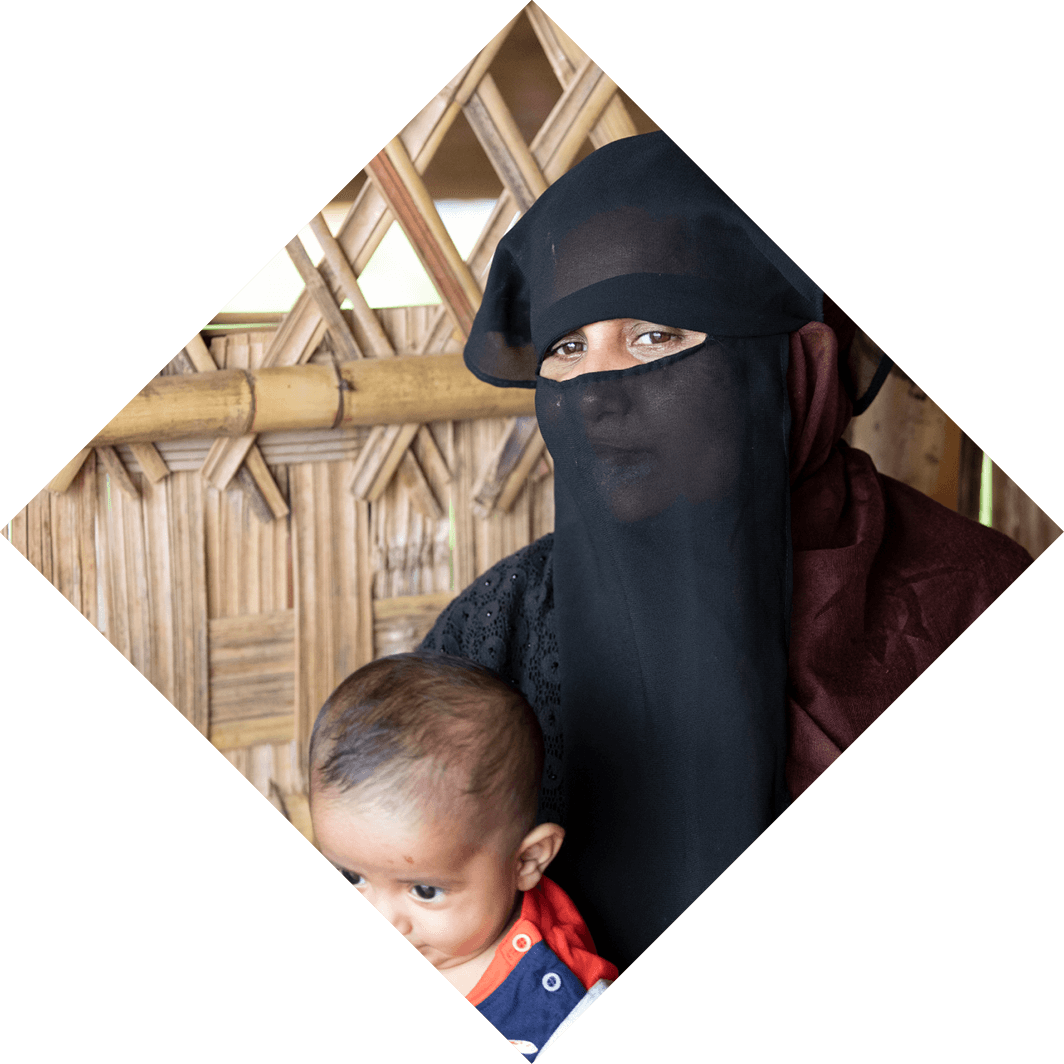
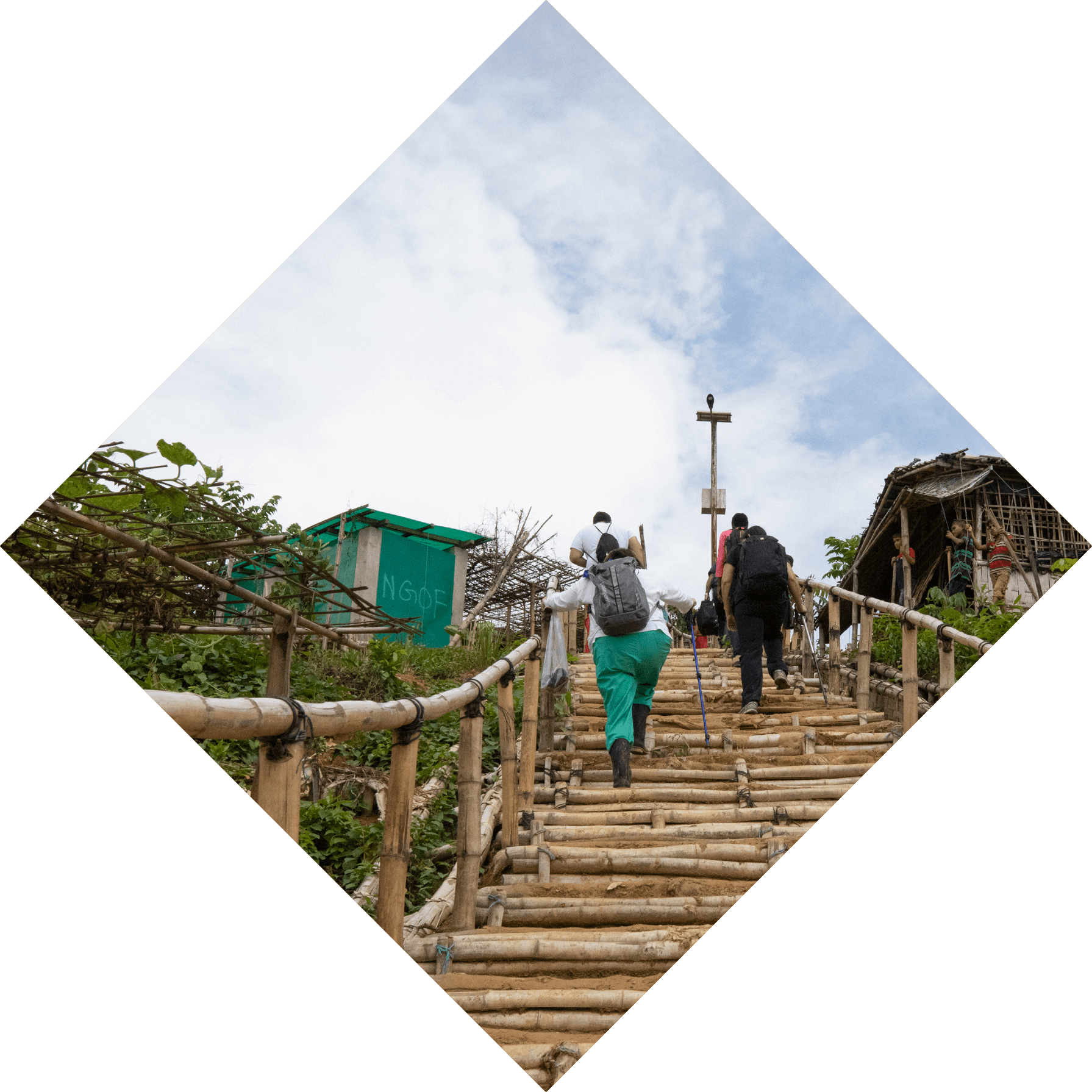
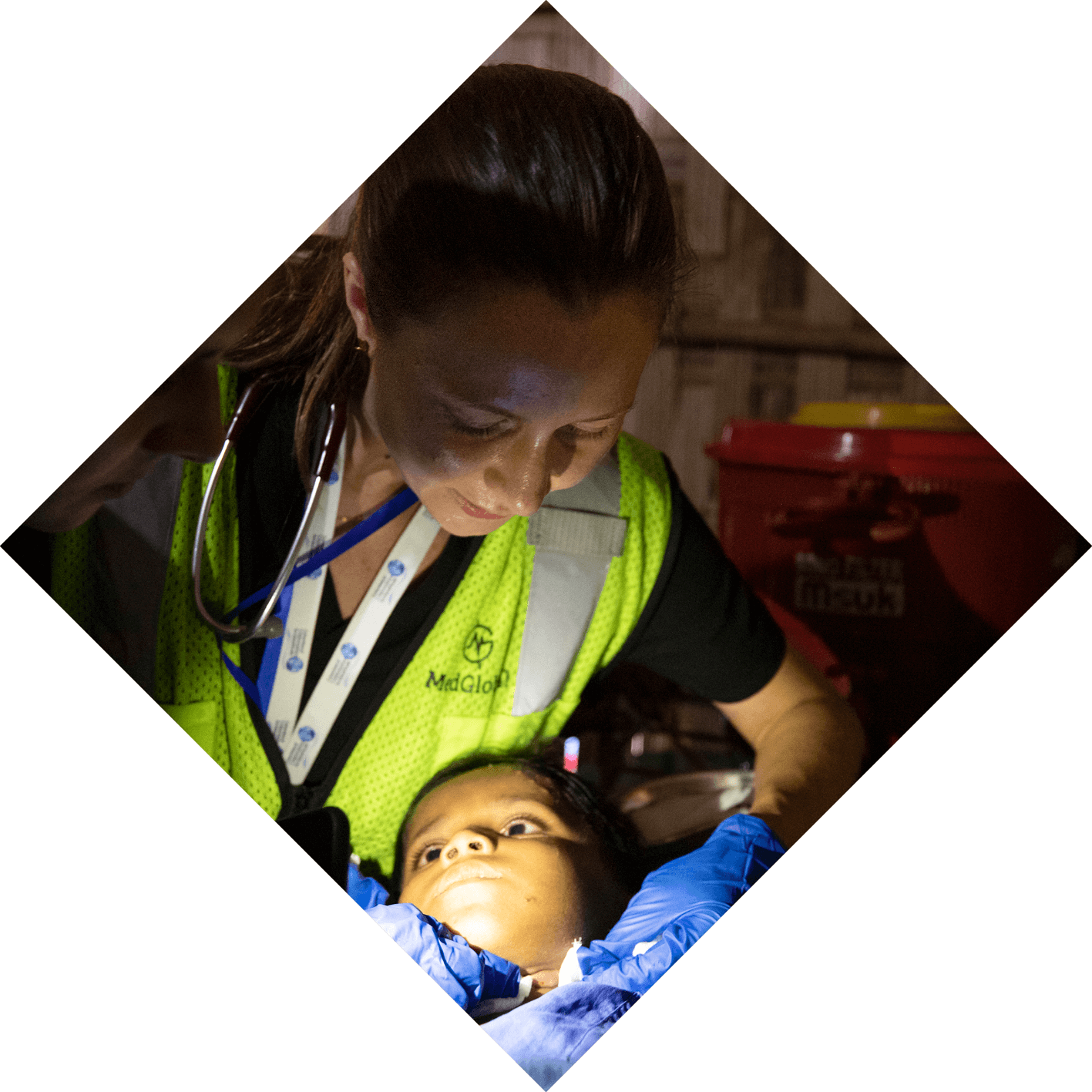
“I’ve been to many places in the world, but I’ve never seen anything like this.”
Samir Abu-Hamid, MD Class of 2020
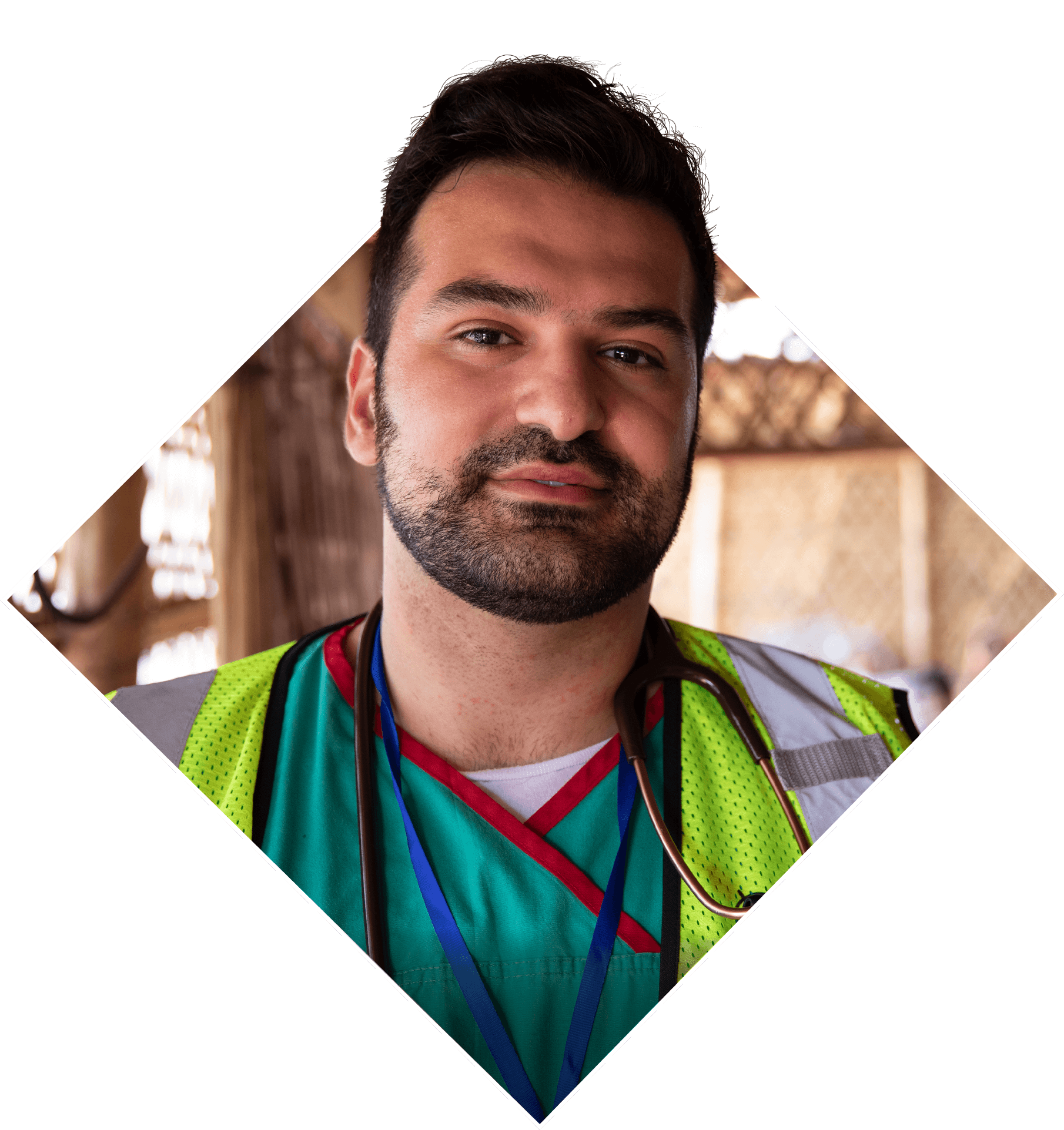

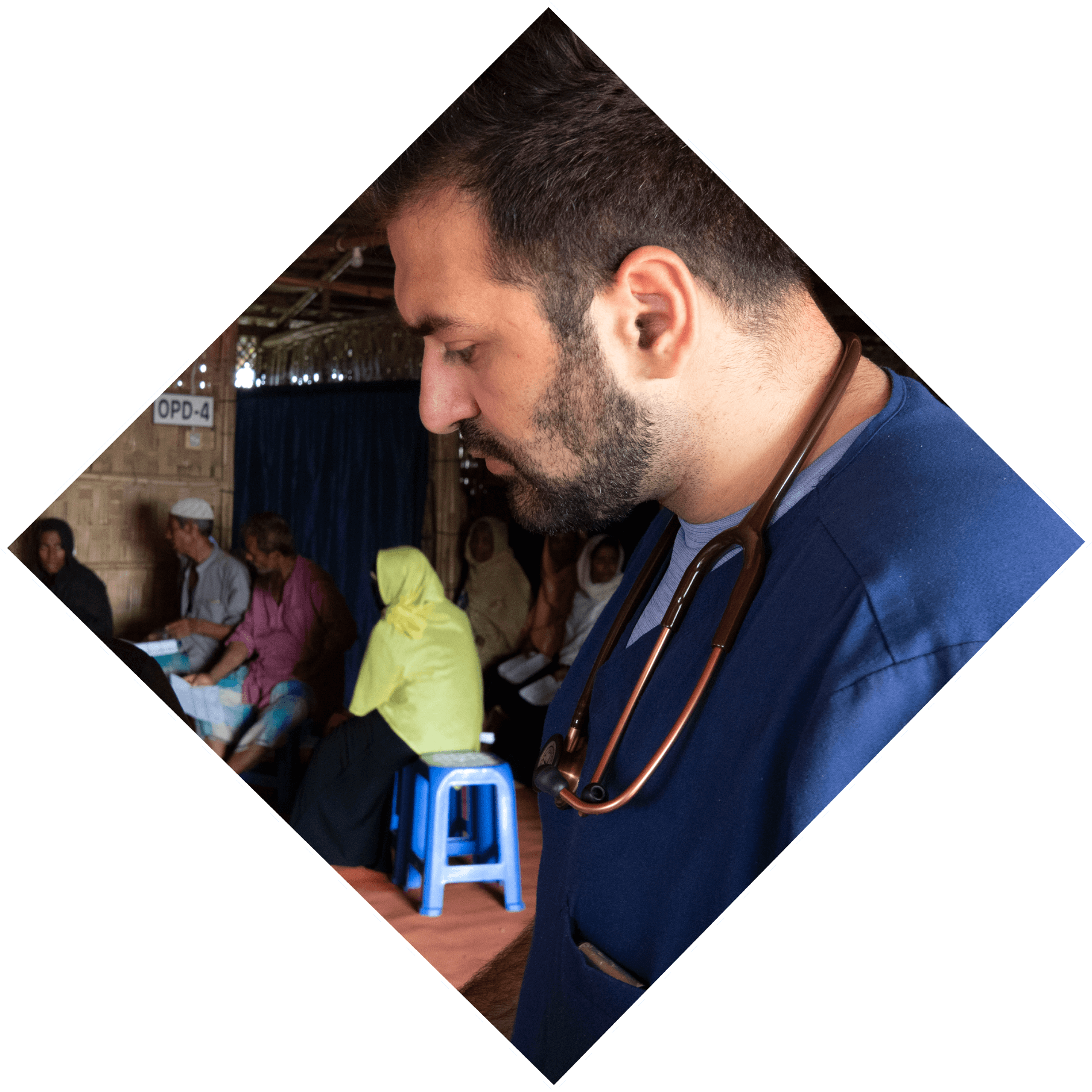
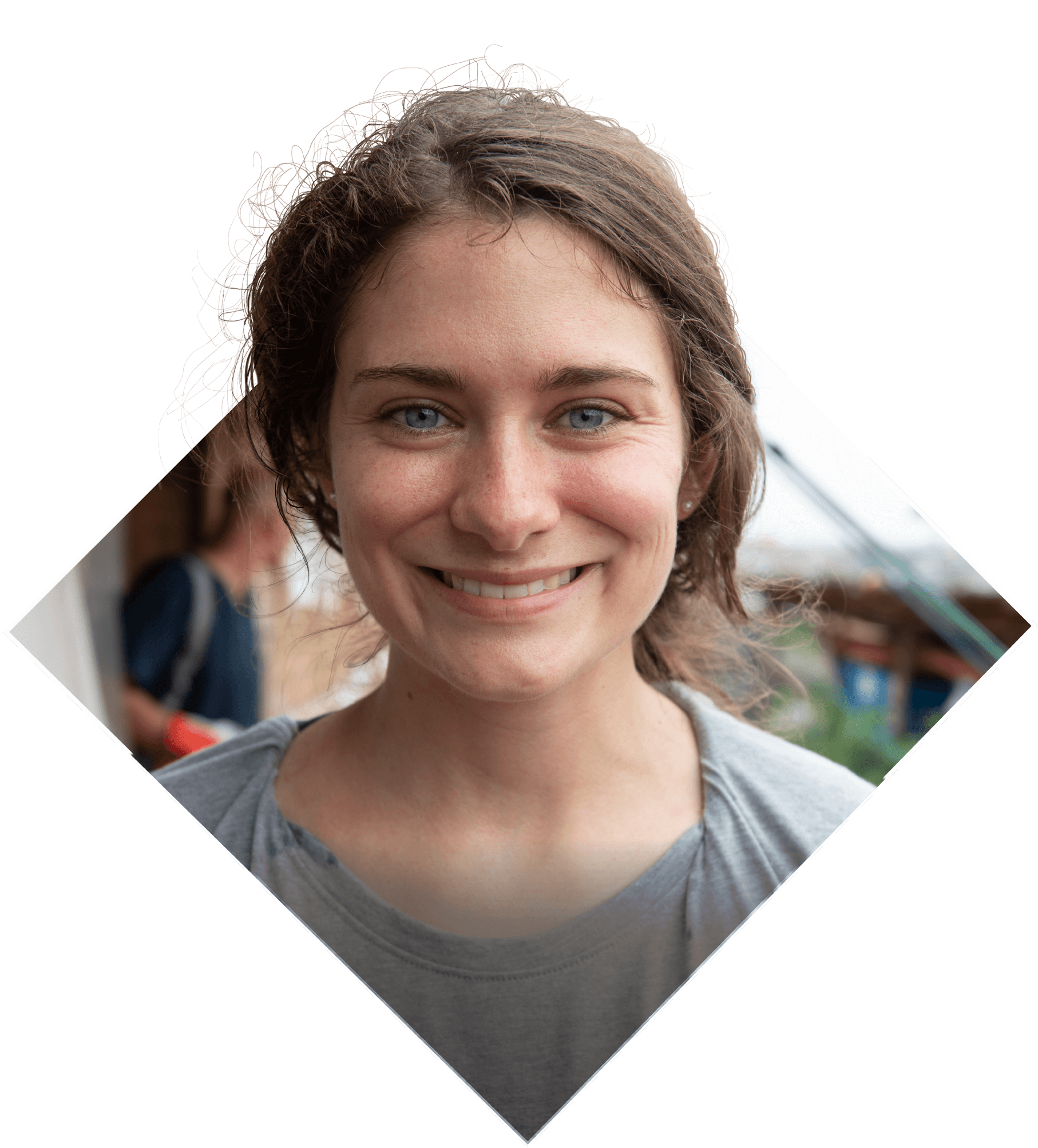

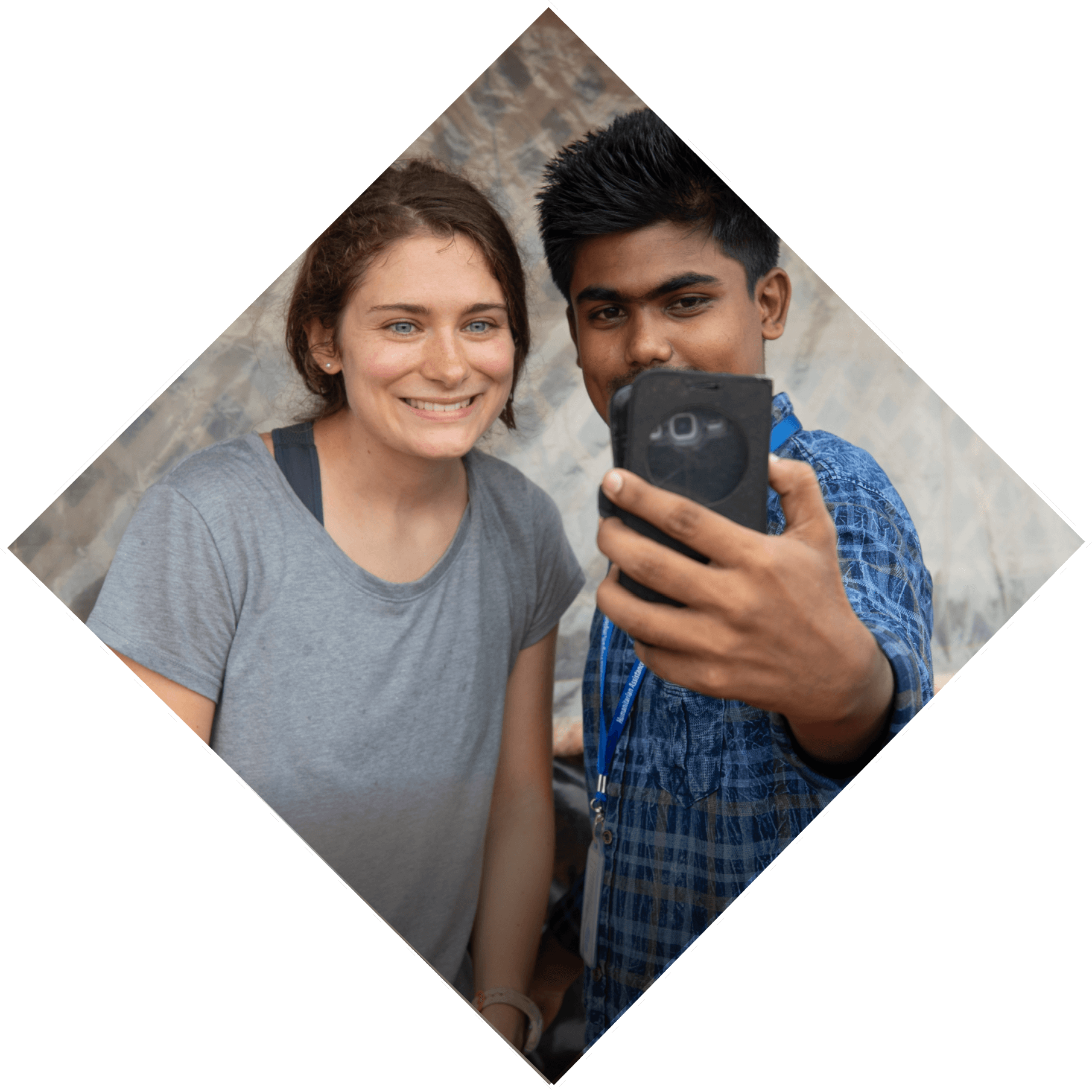
“Something that’s been unique is the intentionality we’ve approached this with.”
Nicole Hawkins, MD Class of 2021
“Being with people when they’re vulnerable like this is not a sacrifice. It’s a privilege.”
Jessica Quirk, MD (Family and Community Medicine Residency ‘19)
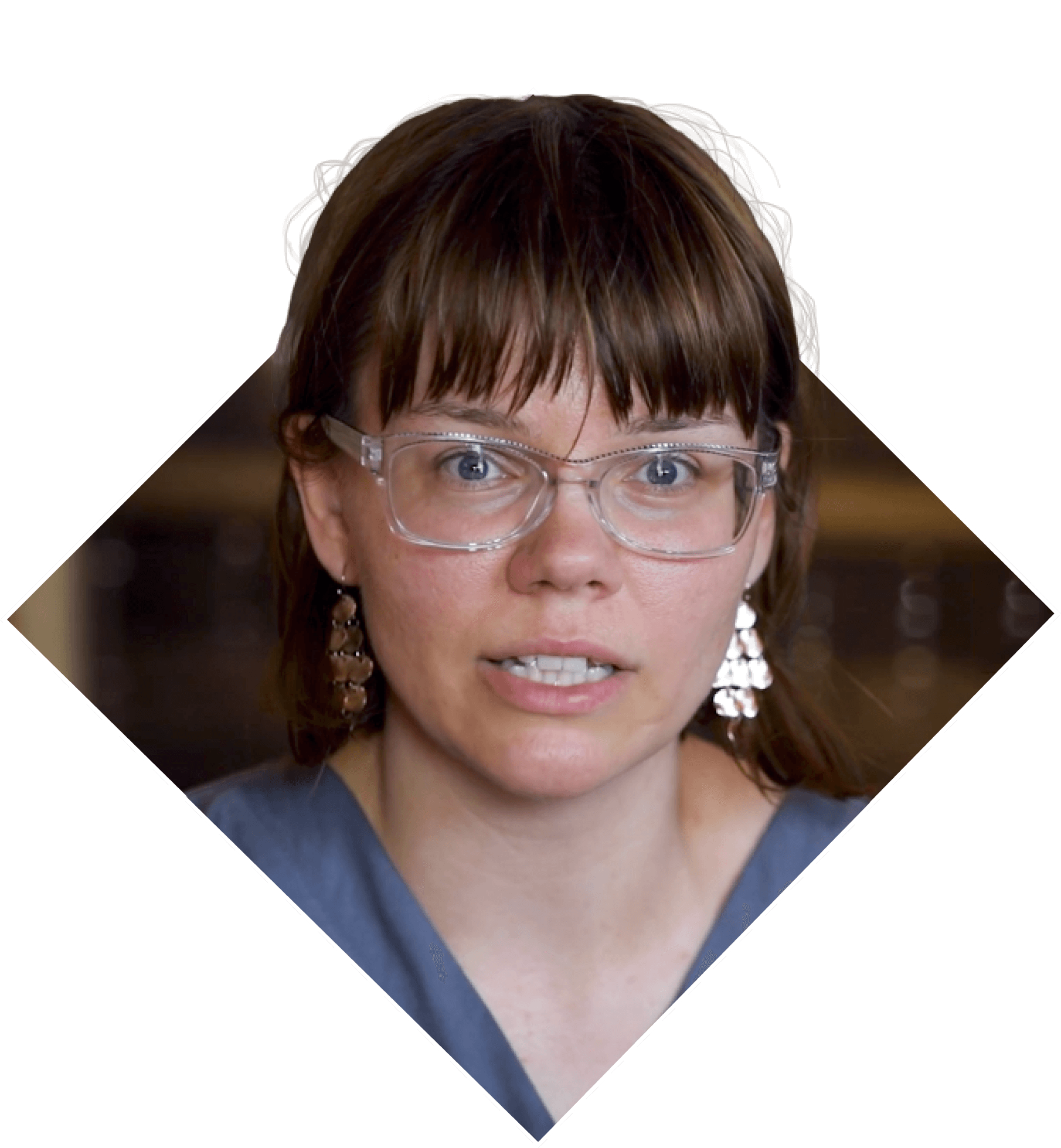

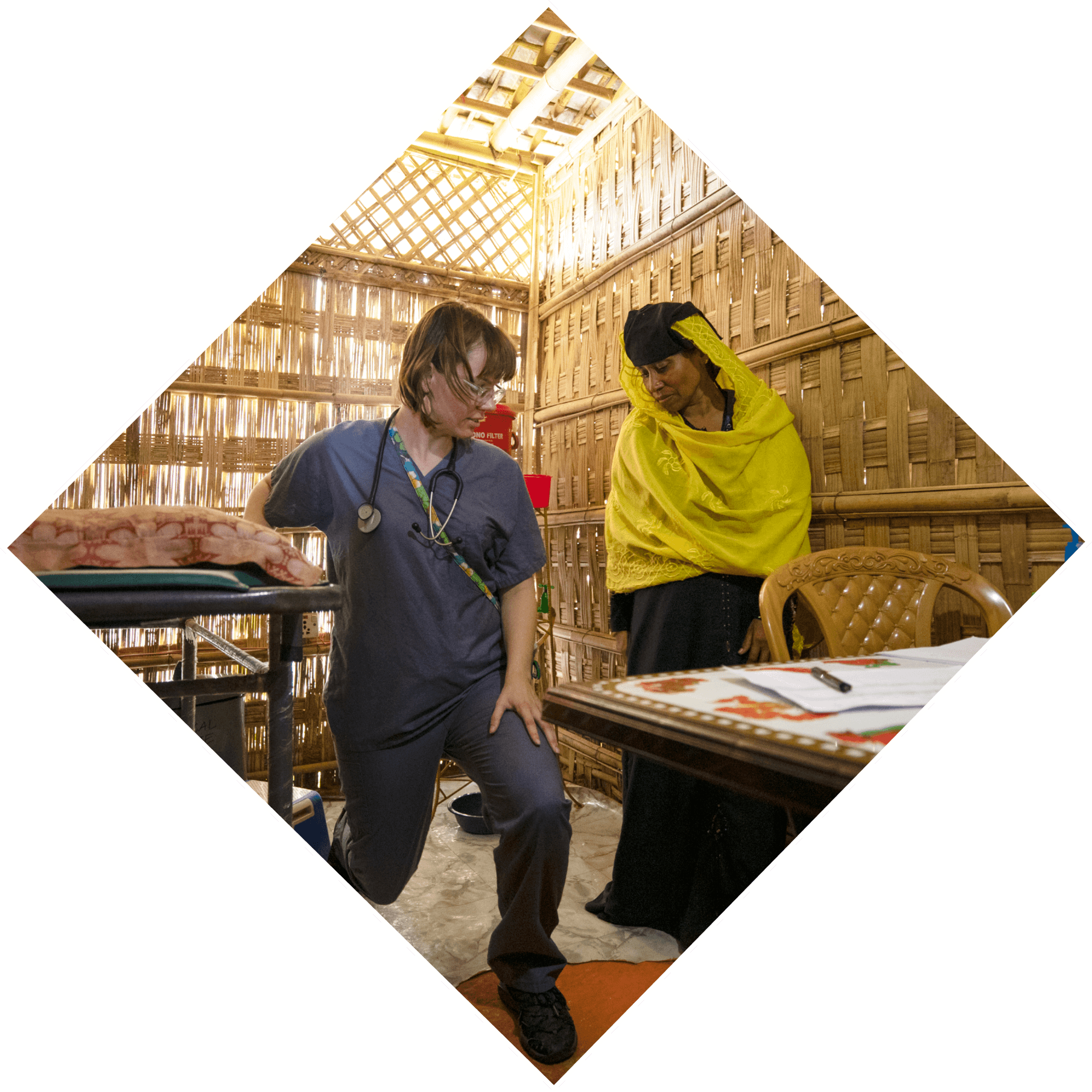

Clinic Snapshot
The small eight-room clinic in Camp 4 was made of bamboo and included a pharmacy. At least half of the refugees who lined up each day to be seen at the clinic had to be turned away due to a lack of healthcare volunteers.
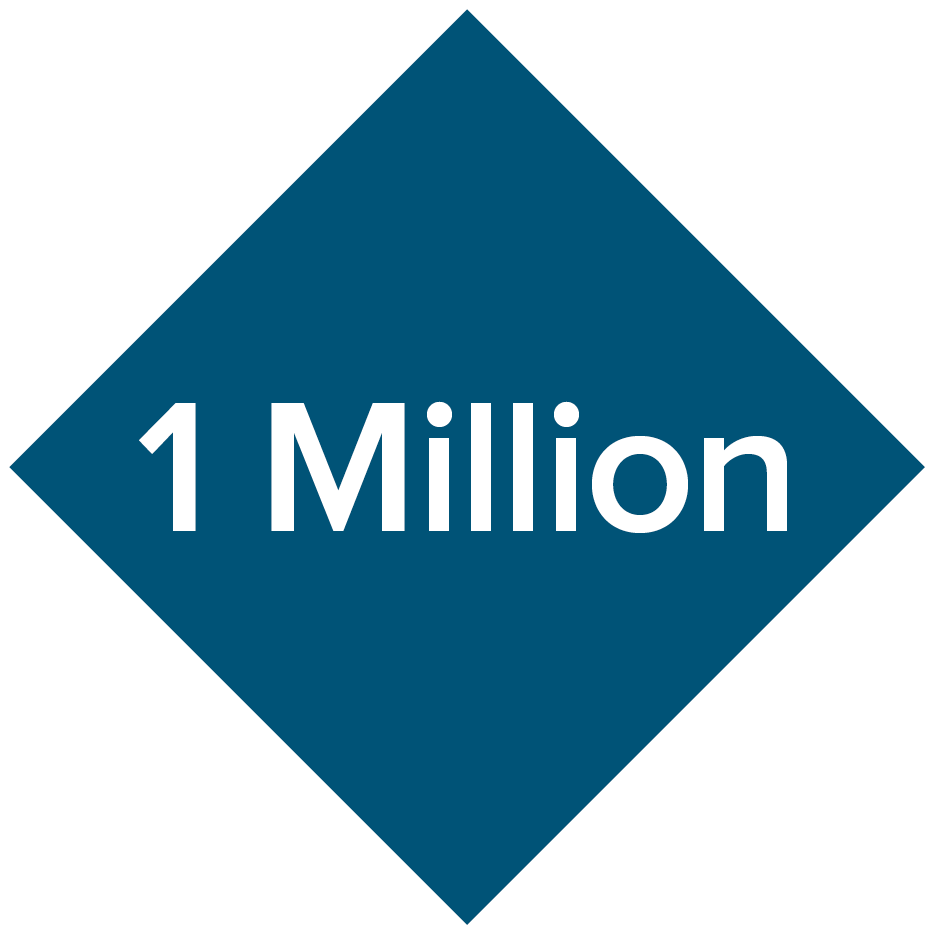

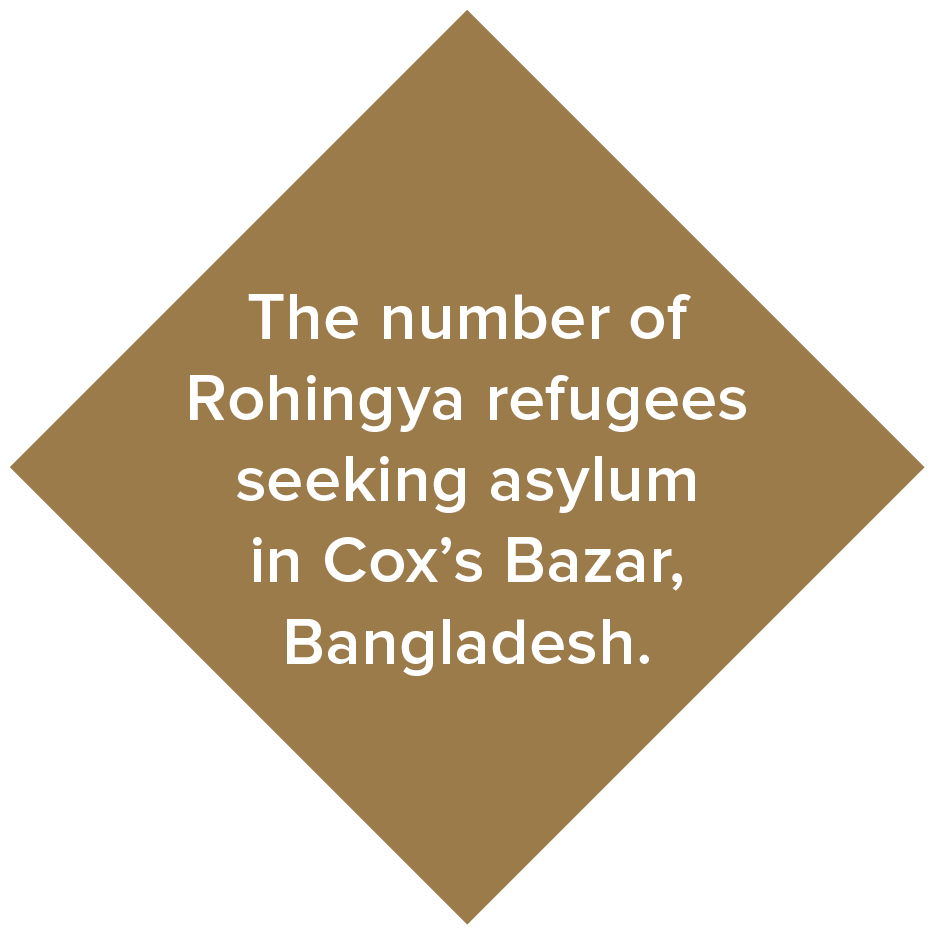
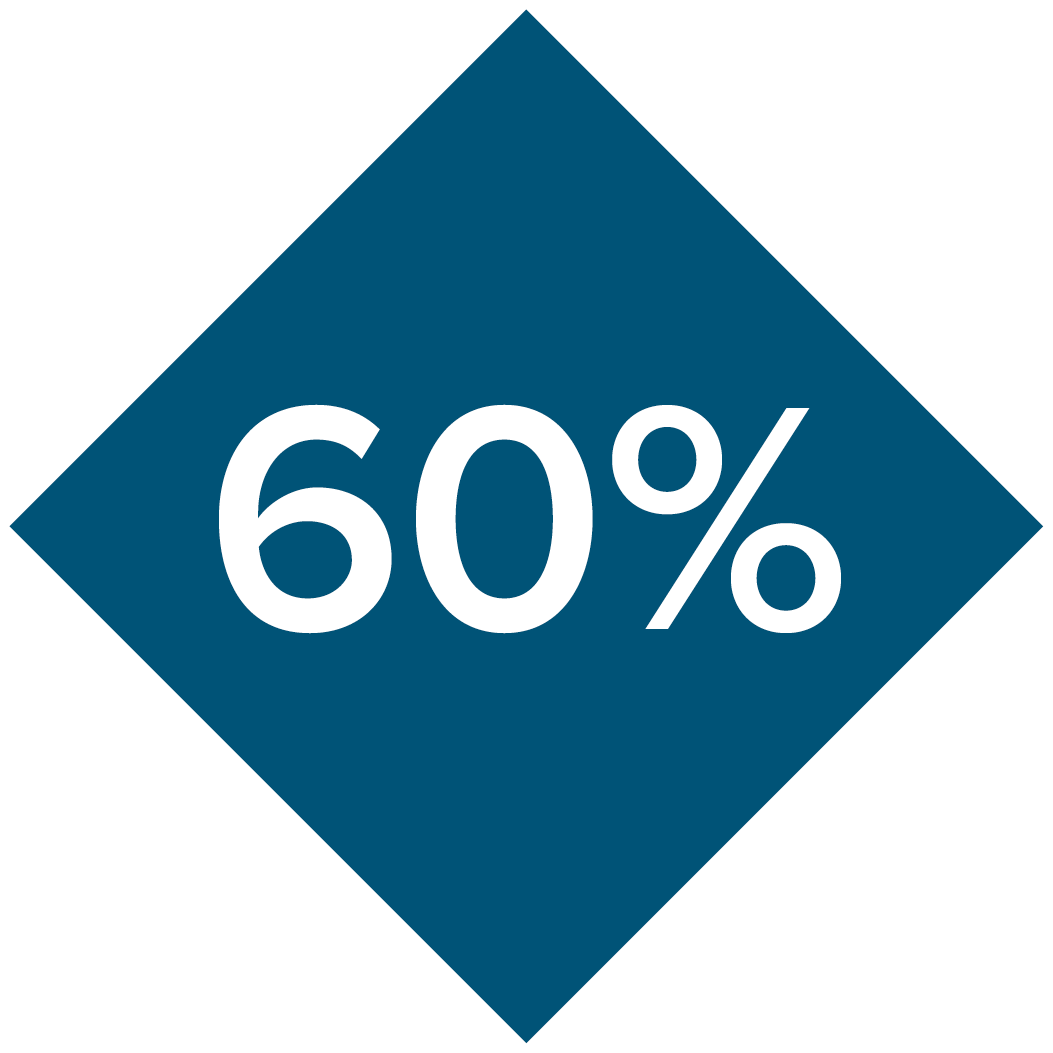

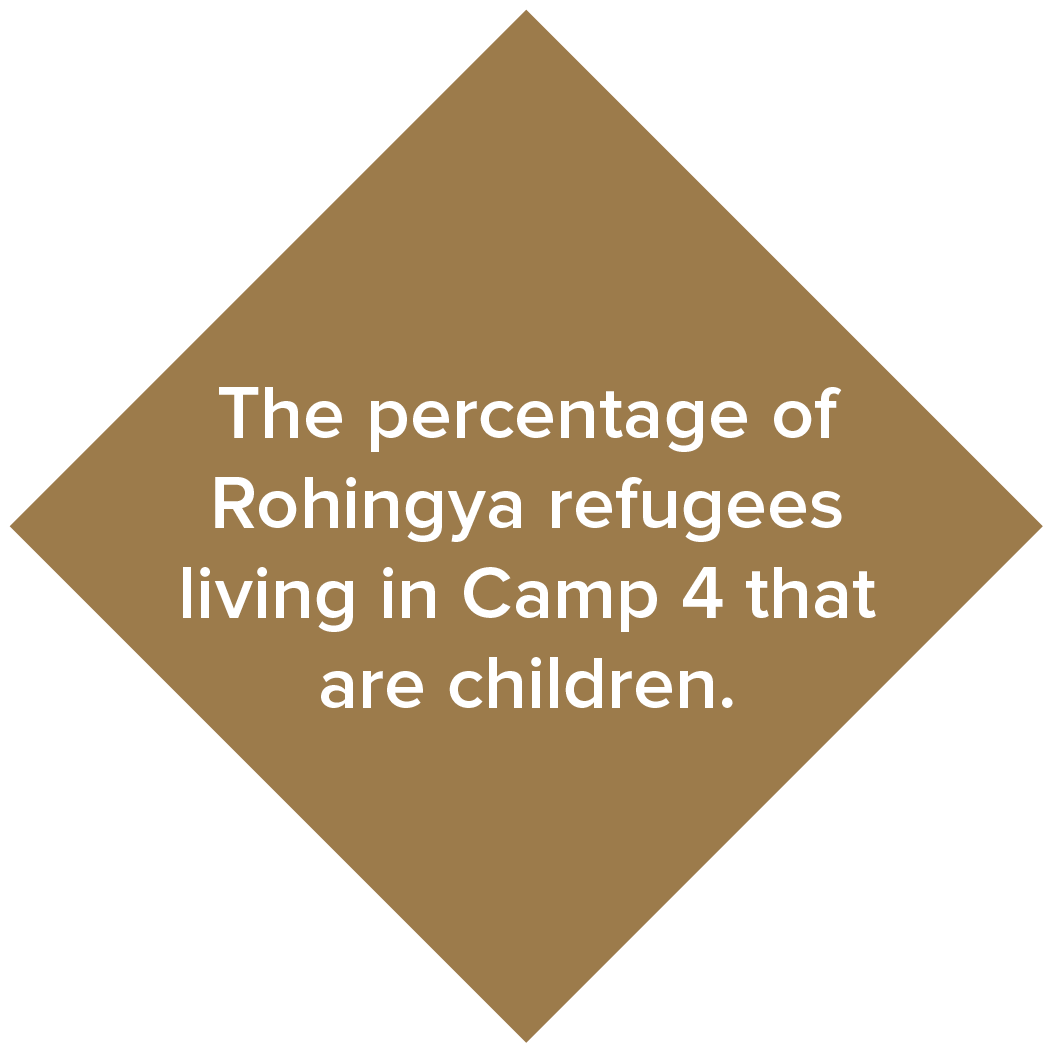
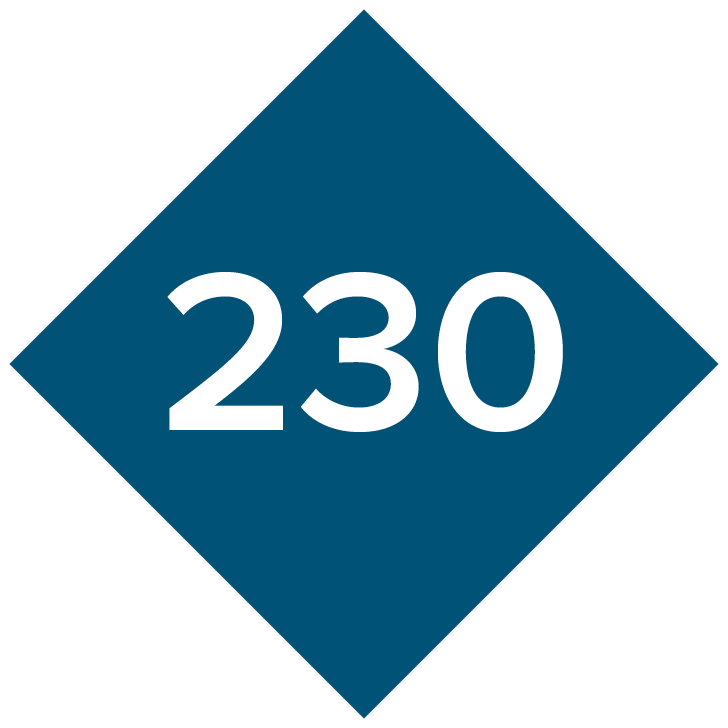

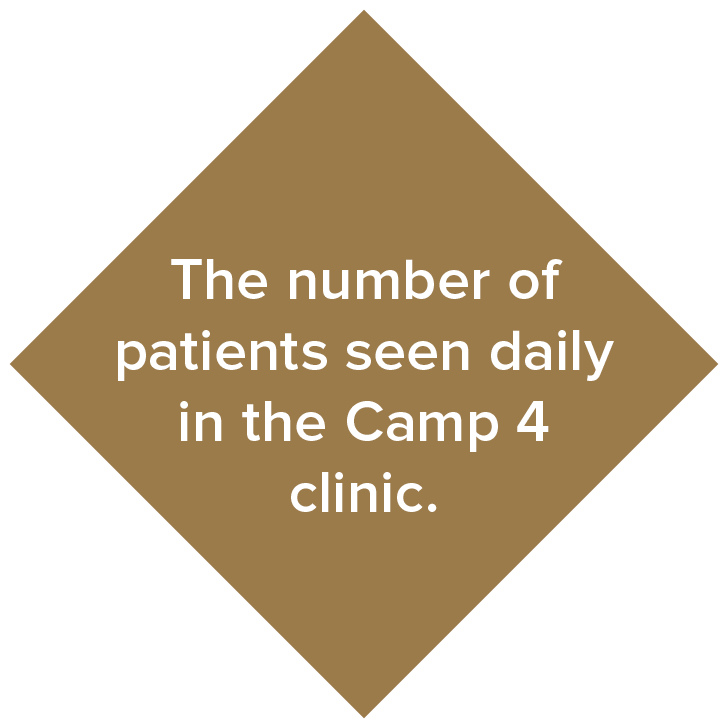
“Being here in this clinic,” Dr. Leader says, “and getting to watch the men, women and children who wake up every day in this camp — which is itself an expression of hope — teaches us that it is truly in the shelter of one another that we will live. We must learn from them, share in these moments of connection and then commit to and act upon that same hope. Let it be what wakes us up in the morning and determines what kind of physicians we will be, what kind of health professionals we will be, what kind of people we will be.”
EVMS Physicians
- Alexandra Leader, MD, MPH, Director of Global Health and Assistant Professor of Pediatrics
- Robert Bradshaw, MD, MPH, Associate Professor of Family and Community Medicine
- Peter Paik, MD, Assistant Professor of Family and Community Medicine
- Jessica Quirk, MD (Family & Community Medicine Residency '19)
EVMS Staff
- Lydia Cleveland, MPH, Program Coordinator for Global Health
- Cory Hooper, Media Manager, Marketing and Communications
EVMS Students
- Samir Abu-Hamad, MD Class of 2020
- Ellen Downing, MD Class of 2020
- Nicole Hawkins, MD Class of 2021
- Nour Mhaimeed, Medical Master's Class of 2020
- Amanda Severn, MD Class of 2021
Community Partners
- Bernardo Canga, MMT, Music Therapist
- Karen Ireland, RN, LCC, Sentara Lactation Specialist
- Hyasinter Ruguro, MA, Human Security and Peacebuilding Commonwealth Catholic Charities
- Sara Ahmed, MD, Medical Director of Education, Chair of Pediatric Medical Services at Mary Bridge Children's Hospital Emergency Department
EVMS Global Health fosters collaboration with local and international NGOs that support education, quality improvement, clincal service and collaborative research to strenghten systems of care and uphold the health of communities worldwide.
in construction and sit closely to one another.
clinic after getting dropped off outside of the camp.

